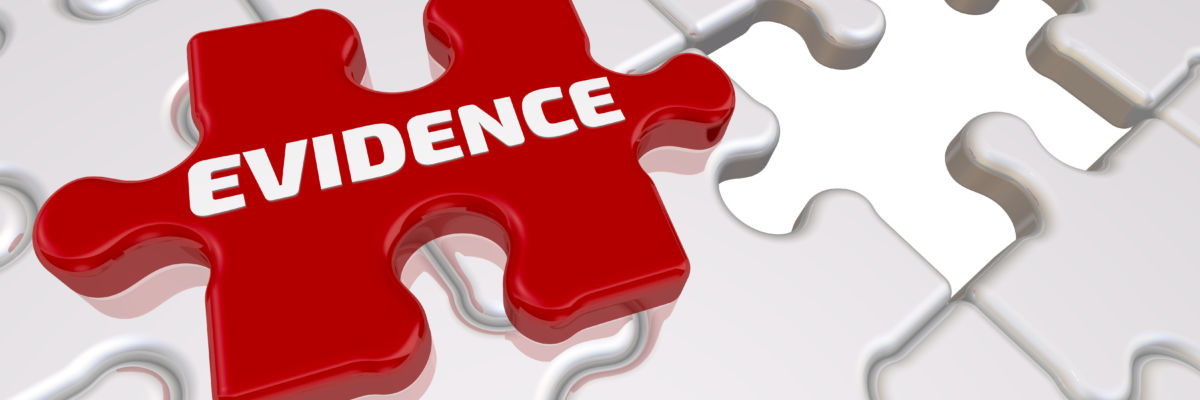
As an apologist, I keep in touch as best as I can with the religion- and worldview-related ideas floating around popular culture. Especially the weird ideas, since I know that sooner or later I will encounter them in an apologetic context. This means, among other things, that I listen periodically to New Ager Art Bell—who until his recent retirement hosted the country’s most listened-to late-night radio talk show—and other, similar hosts.
These shows deal with strange and unusual claims—kind of like The X-Files, only presented as fact rather than fiction. Sometimes the hosts even have “debunkers” as guests on their shows to debate the claims that are being made.
When that happens, however much I may be rooting for the skeptic and however convinced I am that the latest extraterrestrial-channeling time-traveler is lying through his teeth, I often hear the skeptic use a particular argument that just doesn’t work.
When encountering a claim that something extraordinary has happened—a miracle, an apparition, a healing, a UFO sighting—a skeptic may assert, “Extraordinary claims require extraordinary evidence,” and then reject the truth of the claim on the grounds that such evidence either does not exist or has not been produced.
Not only is this argument wrong on the facts, it’s misguided in principle. It’s a logical fallacy, and I’ve dubbed it the “extraordinary evidence” fallacy. It is commonplace when secularists and skeptics argue against claims about the paranormal, supernatural, and religious. That’s right—the religious.
However silly we may think a lot of New Age ideas are, at least New Agers acknowledge that there is an unseen, supernatural dimension to the world. We agree with them on that. It is not surprising, therefore, to find anti-supernaturalists using the same arguments to attack New Agers that they use to attack Christians. One of their favorite weapons is this extraordinary evidence fallacy.
Here’s an example of the fallacy applied to religion: “People do not ordinarily rise from the dead. Thus, the claim that Jesus rose from the dead is an extraordinary claim and requires extraordinary evidence. Such evidence does not exist. Therefore, the claim that Jesus rose from the dead should be rejected.”
This argument would be reasonable—if there were no evidence that Jesus rose from the dead. But in fact this evidence is available, has been published in many books, and is often presented to the skeptics in debates on the subject of the Resurrection. Still, many persist in denying that the evidence exists or, if it does, that it is insufficient. There may be evidence, they will concede, but it isn’t extraordinary evidence.
It is at this point that one suspects that something fallacious is going on. Just what is meant by “extraordinary”? Is the skeptic loading into the word some unstated or unspecified meaning that makes it unduly difficult or even impossible to fulfill the proposed test? In fact, this is what is happening.
The reason the assertion “Extraordinary claims require extraordinary evidence” is persuasive is that it appears axiomatic. It sounds simple and intuitive, almost like a tautology (e.g., “All red things are red”). And it can be used in a perfectly valid manner—provided that the terms of the claim are interpreted correctly.
For example, the phrase “extraordinary claims” is best taken to mean claims about things that are extra-ordinary—that is, outside of the ordinary—uncommon, rare, or atypical things. We can then interpret the phrase “extraordinary evidence” in a parallel fashion. “Extraordinary evidence” thus becomes “evidence about the extraordinary” or “evidence about extraordinary things.” If this understanding is followed, then the assertion is a truism. Indeed, it is one of the foundational rules for considering evidence, and it is used in every trial concerning murder or rape.
Murders and rapes are extraordinary events, meaning, out of the billions of daily human interactions, they do not ordinarily occur. At every trial concerning them, evidence is presented that an extraordinary thing has happened and that a particular individual has done something that is out of the ordinary.
Unfortunately, the “extraordinary evidence” assertion is often understood in a different sense, one in which the skeptic commits a fallacy of ambiguity. The ambiguity typically involves two things: Either the term “extraordinary” is taken to refer not to the subject of the evidence but to the quality or character of the evidence; or the term “extraordinary” is used to mean that which is shocking, arresting, or overwhelming.
This understanding of “extraordinary” may be applied to both terms in the extraordinary evidence claim or only to the second. If applied to both, the extraordinary evidence claim would mean (1) “Overwhelming claims require overwhelming evidence.” If applied only to the second term, it would mean (2) “Claims about things outside the ordinary require overwhelming evidence.”
If the first sense is meant, then the claim is hopelessly subjective. What claims one finds overwhelming (or shocking or arresting) is a subjective matter that varies from person to person within a culture or between persons of different cultures. Similarly, sense (2) is also too subjective: What is out of the ordinary can be established through probability studies, but what is overwhelming cannot.
C. S. Lewis noted the tendency among individuals, once they have accepted a belief, to retain it until evidence to the contrary becomes subjectively overwhelming. He referred to this as “obstinacy in belief” (see his essay of that title). The same phenomenon is noted by Thomas Kuhn regarding the way scientific revolutions occur (see Kuhn, The Structure of Scientific Revolutions): Only when evidence becomes subjectively overwhelming for scientists does the reigning scientific paradigm in a particular area change. This speaks less to the state of the evidence than to the state of the psychological consensus among scientists.
Consequently, the evidence on a question may support more than one interpretation. It may support even point toward a paranormal, supernatural, or miraculous conclusion, though the evidence may not be such that it overwhelms the subjective convictions of the skeptic.
For practical purposes, therefore, (1) is useless as an objective criterion for weighing evidence and evaluating claims.
Sense (2) is equally problematic. First, it no longer gains plausibility from sounding like a tautology. There is no reason why claims about things outside the ordinary should require overwhelming evidence. If someone claims that it hailed in last night—hail being something out of the ordinary—we do not need “overwhelming evidence” for this. A statement by an eyewitness would be sufficient unless we had reasons to doubt his veracity.
Logically, however, it shares the same fatal flaw as interpretation (1): What evidence one finds overwhelming is a subjective matter that makes (2) useless as an objective criterion for assessing evidence and evaluating claims.
When one encounters someone making the “extraordinary evidence” claim, one should determine whether it is being used fallaciously. If it is, one should point that out to the skeptic. However, one should be cautioned that the skeptic may be entrenched in an anti-supernatural worldview that prevents him from seeing the objective force of the evidence.
Attempts should be made to point out to him the subjective way in which he wants the evidence to operate and the fact that his worldview is biased against the supernatural in the same way, for example, that Newtonian physicists were biased against Einsteinian physics. But one must recognize that he may cling to the “extraordinary evidence” fallacy no matter how clearly its problems are pointed out. When it comes to anti-supernaturalists, the old saying is true: “You can lead a horse to water, but you can’t make it drink.”



